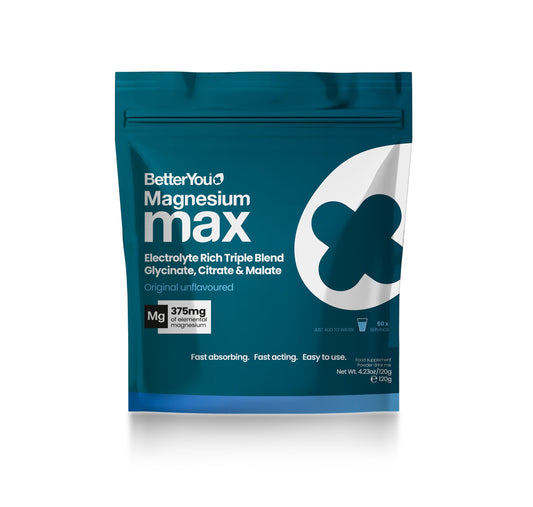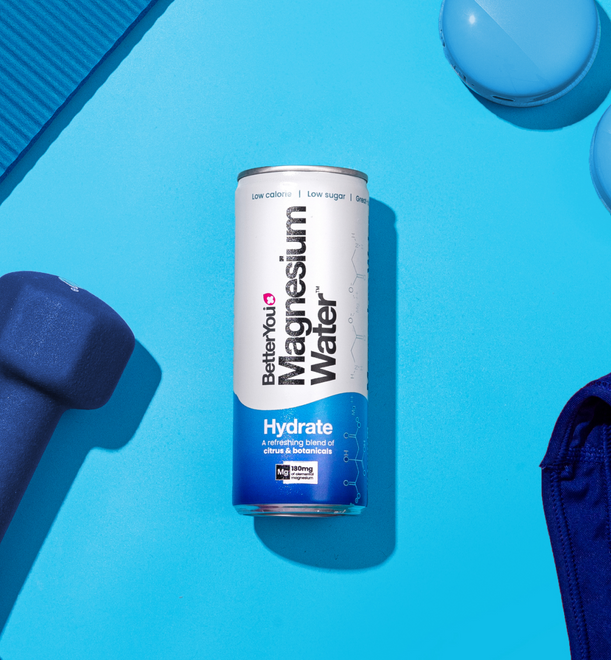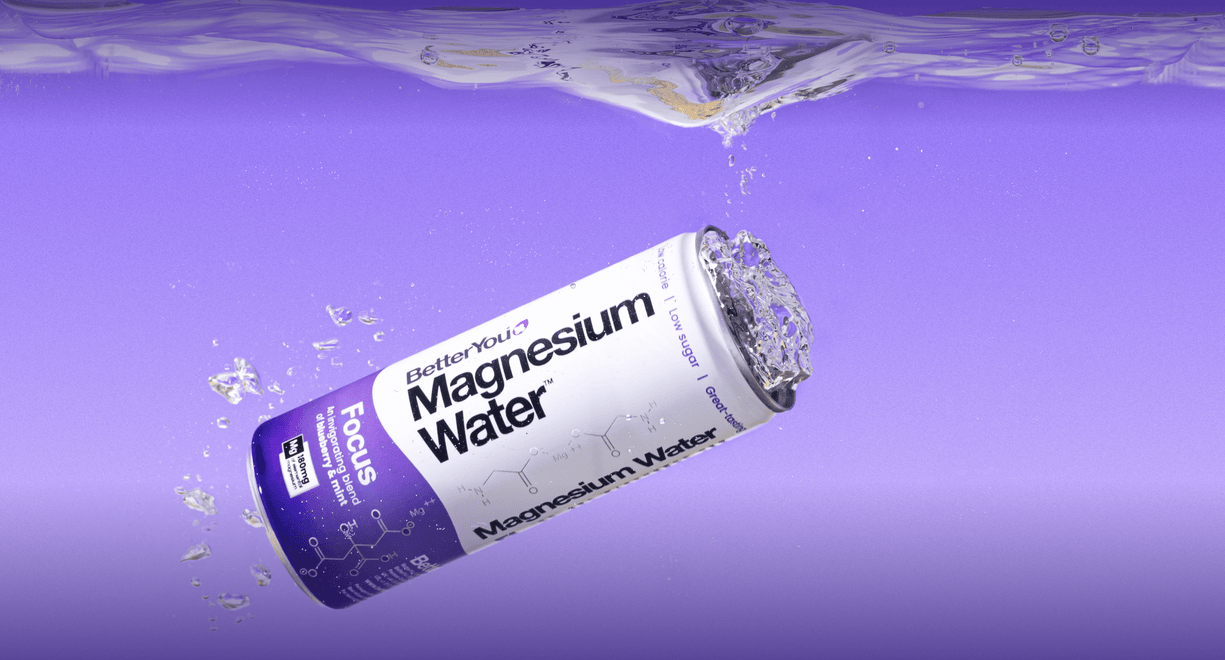Supplements to support stress help to reduce the impact worry has on your body. Stress responses can lead to a reduction in essential vitamins and minerals, which can leave you feeling fatigued and at risk of deficiencies. Our guide to the impact on your health can help you find supplements to help you manage the side effects of stress.
Table of Contents:
- What is Stress?
- How Does Stress Impact Nutrient Absorption?
- Best Supplements to Support Stress
- How Does Stress Impact Your Health?
- Causes of Stress
What is Stress?
Stress is defined as a state of worry or mental tension caused by a difficult situation (as defined by the World Health Organisation). It is the body’s reaction to feeling threatened or under pressure, and can have a serious impact on your health.
It triggers the release of stress hormones including cortisol, adrenaline and noradrenaline which elevate heart rate, increase blood pressure and increase breathing rate to prepare you to deal with stress.
Stress can lead to a depletion of key nutrients which your body needs to function normally. The best supplements for stress help to replenish those which can be depleted, as a way to help combat stress. It is important to support your body with the right nutrients for stress in order to alleviate symptoms.
How Does Stress Impact Nutrient Absorption?
The body tries to regulate itself, maintain homeostasis, work efficiently and attempt to reduce negative effects. In order to do this, your body uses greater quantities of certain vitamins and minerals. This is why without supplementation support during period of high stress, you could feel low on energy.
Stress affects your nutrient levels, and also makes it more difficult for your body to absorb them, putting you more at risk of a vitamin or mineral deficiency. Periods of stress will deplete all nutrients, but the most important nutrients for stress are:
Best Supplements to Support Stress
Supplements for stress relief include those which are at risk of depleting when your stress levels become high. It’s important to try and reduce the causes of stress in your life, but maintaining proper supplementation can help avoid the risks of low levels. When supplementing, always consider nutrient reference values and safe upper limits to achieve optimum intake.
Magnesium
- How stress affects magnesium - Magnesium and stress have an intertwined relationship because low levels can lead to the symptoms of stress, and stress can lead to lower magnesium levels. Stress can deplete your magnesium levels during periods of physical or mental strain as the body tries to utilise it due to its importance for your muscles and joints. When this happens you may be more at risk of a magnesium deficiency.
- Benefits of magnesium for stress - Magnesium is an important supplement for managing stress and anxiety due to helping increase the level of the neurotransmitter GABA. Magnesium supplements are easy to take, because you can apply them transdermally.
- Signs of deficiency - Poor sleep, fatigue, heart palpitations.
This is why magnesium is an important supplement for stress relief because your body may need more of it when you are experiencing periods of stress.
Iron
- How stress affects iron - Excessive stress has been shown to deplete iron levels, and women, children and vegetarians are particularly at risk. This is why iron is an important supplement during periods of stress.
- Benefits of iron for stress - Iron supplements can support your intake and help you experience the benefits of iron. Our supplements come in the form of oral sprays which means you don’t have to take a tablet.
- Signs of deficiency - Iron plays a vital role in the normal formation of red blood cells which carry oxygen around the body. Low levels of iron can cause fatigue, shortness of breath, and even thinning hair.
B Vitamins
- How stress affects B vitamins - Stress depletes levels of B vitamins, in particular, vitamins B5, B6 and B12, which can lead to vitamin B deficiency. As B vitamins are not stored in the body, they need to be supplemented to keep levels at optimum. They are vital in ensuring sufficient energy for adrenal hormone production.
- Benefits of vitamin B for stress - The benefits of B vitamins include producing certain neurotransmitters which help with mood and stress management. This makes B vitamins vital supplements for stress relief. B vitamin supplements can help to ease stress and support your natural energy levels.
- Signs of deficiency - If your B12 levels get too low, you may experience tiredness and fatigue, pale skin, and suffer from a poor mood.
Vitamin C
- How stress affects vitamin C - Vitamin C is depleted when cortisol is at high levels as it is released in response to stress. This could lead to vitamin C deficiency, and puts you at greater risk of illness and long-term damage caused by oxidative stress.
- Benefits of vitamin C for stress - As vitamin C is water-soluble it cannot be stored, therefore it is an important supplement for stress. Vitamin C supplements can help to increase your intake during these periods.
- Signs of deficiency - If your levels of this type of vitamin become too low, you may suffer from weak bones, slow healing wounds, dry and bumpy skin, spoon-shaped fingernails, corkscrew-shaped body hair with red follicles, and find that you bruise more easily.
Zinc
- How stress affects zinc - Stress can also deplete your levels of zinc. Without optimal levels, you may be more at risk of zinc deficiency, increasing inflammation and risk of illness. This is why zinc is an important supplement for stress, because your body may need more of it when you’re experiencing stress.
- Benefits of zinc for stress - The benefits of zinc include regulating GABA and glutamate. Deficiency is associated with low levels of these neurotransmitters. Including zinc supplements may help to improve your symptoms of stress and anxiety.
- Signs of deficiency - Low levels of this type of mineral can lead to mental tiredness, wounds which don’t heal, hair loss, loss of taste or smell. You could also experience a lack of appetite and weight loss, diarrhoea and impotence.
When dealing with stress, it’s vital to replenish lost nutrients, by eating a healthy diet including foods high in the vitamins and minerals for stress.
How Does Stress Impact Your Health?
Stress impacts your health in many ways. It can manifest in numerous different symptoms including:
- Sleep issues
- Poor immunity
- Digestive issues
- Headaches
- Fatigue
- Hormonal imbalances
- Anxiety
Stress over a long period of time is known as ‘chronic stress’. This is when the body is exposed to cortisol and other stress hormones for a long period of time. This can lead to anxiety, depression, digestive issues, headaches, muscle tension and pain, heart disease, heart attack, high blood pressure, stroke, sleep problems, weight gain, and memory impairment. This is why it is critical to take steps to reduce the stress in your life.
Causes of Stress
Stress can be caused by a number of elements, and everyone will be affected differently. This can make it difficult to identify what is causing you to feel this tension or worry. Some causes of stress may be:
- Feeling pressure to complete deadlines
- Planning or adjusting to big life changes
- Situations you have little control over
- Responsibilities that may be overwhelming
- Experiencing periods of uncertainty or unknown circumstances
No matter what is the cause of your stress, try talking to the people around you for help or reassurance. Always ensure you consider the supplements you may need for stress, and bear in mind the impact stress can have on your nutritional intake. Supporting tension or worry with supplements for stress relief may help you feel more balanced whilst tackling these causes of stress in your life.
Supplementing with BetterYou
At BetterYou, we pioneered transdermal magnesium and oral spray technology. Take control of your supplementation with energy supplements for that needed boost, and sleep supplements when you need help drifting off.


















